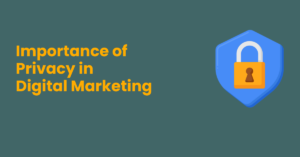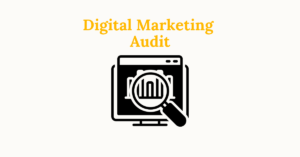It is undeniable that businesses seek to find the best marketing medium through which they can grow their brand, increase the traffic in their website, or boost sales. Among many others, two are the most prominent practices: Social Media Marketing (SMM) and Search Engine Marketing (SEM). Both play their respective parts in a complete digital marketing strategy, but the question is, which is better for your business?
What is Social Media Marketing (SMM)?
Social Media Marketing is the use of social media platforms like Facebook, Instagram, Twitter, LinkedIn, and TikTok for the promotion of your services or product. Organic (unpaid) and paid strategies are included through which a business can directly approach the customers and develop a community around their brand.
Key Benefits of Social Media Marketing:
1. Audiences’ Engagement and Relationship Building:
Relationships with your audience are best understood by means of social media. These allow two-way communication, business to customer, and from customers to businesses through likes, shares, comments, and direct messages, hence creating trust and loyalty.
2. Brand Awareness: With over 4.7 billion social media users around the world, Instagram and Facebook are perfect mediums to expand brand awareness. Brands have a far better chance to communicate their personality, values, or product characteristics in a lesser formal yet more engaging manner.
3. Targeted Advertising:
Advanced targeting options mean that businesses can target demographics: age, location, interests, and behaviour. That means the ads are only in front of the people who are going to see them-first time efficiency.
4. Visual Content:
Platforms like Instagram, Pinterest, and TikTok are primarily visual platforms. Businesses with significant visual appeal – such as fashion, food, and design-can create an immersive and very attention-grabbing rich content that can hold attention instantly.
5. Cost-Effective:
Organic social media efforts are relatively low cost, but even paid ads can be quite efficient in cost when targeting is all in place. You can start with small amounts and then scale up your budget based on the kind of results you are getting.
Disadvantages of Social Media Marketing:
1. Time-Consuming:
Managing several social media accounts and regularly posting content can be very time-consuming. Interaction with users, responding to comments, and consistency of their output require a full-time team.
2. Organic Reach Decline:
Among the characteristics, consistent loss of organic reach in platforms like Facebook and Instagram further forces businesses to depend more on paid advertisement to remain visible, particularly for a new page or product.
3. Difficult to Measure ROI:
While social media is great in terms of relationship building and branding, it can be quite a difficult medium to track direct conversions-considering the fact that organic posts, in most cases, don’t carry any facility for conversion tracking. It can take some time before companies actually start realising a tangible return on investment.
What is Search Engine Marketing (SEM)?
The search marketing that brings business on search engines, such as Google or Bing through paid adverts is called Search Engine Marketing. It has a focus on Pay-Per-Click (PPC) advertising, but unlike social media, SEM is an intent-based form of marketing because users are seeking to find a product or services.
Key Benefits of Search Engine Marketing
1. Intent-Based Traffic:
Another benefit of SEM is the reaping of users who are prepared to look for a solution. Upon entering a search query into Google, he has a better chance at conversion since he wants to find a solution to something. This gives higher conversion rates than any other platform.
2. Measurable Results:
SEM offers very clear and measurable results using rich analytics. You can track everything from impressions and clicks up to conversion rates and ROI. This helps you know whether your campaign is working or not, hence in a position to make appropriate adjustments.
3. Fast Results:
Unlike SEO, which creates organic visibility over time, SEM provides quick returns. That means for quick traffic and leads, you can create a Google Ads campaign and start getting clicks almost immediately; this is ideal for businesses searching for fast traffic and leads.
SEM offers highly focused targeting on search query but also targeting by location, device, and time of day. This means your ads will appear to users actively looking for products or services you offer.
4. Control Over Budget
The advantage of SEM is that with it, one has full control over their ad budget. Daily limits can be set and the amount willing to pay for clicks chosen thus easily managing the cost and scaling campaigns based on requirements.
Disadvantages of Search Engine Marketing:
1. Intensive Competition and Expensive:
Here, SEM can be quite expensive in competitive industries, especially if bidding wars drive up popular keywords; this is especially so in industries such as law, real estate, or insurance. Without careful management, an SEM campaign can fast expel a budget.
2. Limited Engagement:
While social media is relational and has a tradition of even building long-term relationships with customers, SEMs, as transactional, fail to build a relationship with customers. Furthermore, it is centred on conversions, with no opportunity for engagement as there would be on social platforms.
3. Ad Blindness:
Some users have gotten “ad blindness,” ignoring paid search ads and heading directly for the organic results. This might be true for your SEM campaigns, especially in niches where users are hesitant about ads.
Which is Better for Your Business?
Answering which is better, Social Media Marketing, or Search Engine Marketing depends on which channel has a better fit in your business goals and audience.
– if your target is brand awareness and relationship building then Social Media Marketing is most probably the better choice. This method allows you to connect with your audience up close, narrate your brand’s story, and cultivate a loyal customer base over time.
– If you desire quick, high-intent traffic and convert it immediately, then SEM is what you need. However, if you’re looking forward to lead generation and sales, then SEM will be great because active users in search mode can catch products or services right away.
Actually, a good strategy would be to combine both. Use SEM so that it gets the traffic, conversions, and, using social media, builds your long-term relationship and loyalty with the brand.
Conclusion
Neither of which is significantly better than the other; each has its strength and weakness. Knowing what your business goals are, how your audience behaves, and the resources at hand will guide you to know which approach-between or among these two-will actually give you more.




